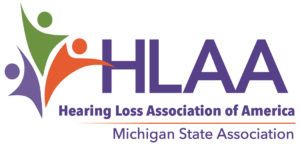Bill introduced in the Michigan Legislature:
H.B. 4440 – Amends the Public Health Code of 1978 related to cytomegalovirus (CMV) infection.
Introduced in the Michigan House of Representatives in March by Representative Kosowski. This bill, if passed, would require the state health department to do a public and health provider education and awareness campaign on risks related to cytomegalovirus (CMV) infection.
It is estimated that congenital CMV infection accounts for approximately 21% of all hearing loss at birth. Since late onset losses may occur following CMV infection, about 25% of hearing loss in children by four years of age is likely CMV-related hearing loss. These numbers suggest that CMV is the leading nongenetic cause of hearing loss in children in the U.S.
There is no “Call for Action” for this bill at this time. Watch here for updates on this bill.
Bills introduced in Congress:
S. 48 – Hearing Aid Assistance Tax Credit Act
Introduced into the U.S. Senate on January 5, 2017. This bill amends the Internal Revenue Code to allow a tax credit of up to $500 once every five years for the purchase of a hearing aid that is authorized under the Federal Food, Drug, and Cosmetic Act for commercial distribution and is intended for use by the taxpayer or a dependent of the taxpayer.
HLAA National’s position on this bill:
“Several iterations of the tax credit bill have been introduced over the span of nearly 14 years, and none have passed. HLAA has therefore decided to focus its efforts and resources on initiatives that we believe will have a more far-reaching impact.” (HLAA)
The HLAA-MI advocacy committee has chosen to follow the lead of our national organization. Individually, you can support this bill if you would like.
H.R. 1539 & S. 652 – Early Hearing Detection and Intervention (EHDI) Act
Introduced in March 2017 in both the House and the Senate of the U.S. Congress. Passage of this bill reauthorizes current research and public health activities related to early detection, diagnosis, and treatment of hearing loss in newborns and infants and ensures the continued success of existing early hearing detection and intervention programs.
Proponents of this bill are asking that we contact the men/women who represent us in the U.S. Congress and ask them to co-sponsor the bill.
H.R. 1652 & S.670 – Over-the-Counter Hearing Aid Act of 2017
In March of this year, the Hearing Loss Association of America (HLAA), issued a CALL TO ACTION to its members to support legislation (introduced in both the House and Senate of Congress) to make hearing aids for those with mild to moderate hearing loss available over-the-counter (OTC).
As part of the HLAA CALL TO ACTION, national staff have created a new section on the HLAA website entirely devoted to over-the-counter hearing aids. http://hearingloss.org/content/otc-hearing-aids. Please go to this site to find out exactly what an OTC device is, what it means to people with hearing loss, a Fact Sheet and sample letters for contacting your Senators & Representative in Congress.
Other actions you can take to become familiar with HLAA’s position on the OTC hearing aid bill:
- Become familiar with The National Academies of Sciences, Engineering and Medicine Report (NAS). http://www.hearingloss.org/content/nas-report
- Download the transcript or replay a webinar presented by national staff on January 18, 2017, entitled, “Making History: The NAS Report Explained”
http://hearingloss.org/online-community/webinars/transcripts-replay-webinars
- Participate in the HLAA Webinar scheduled for May 17 at 8:00 pm; topic, “OTC Hearing Aids: Rationale for Support,” presented by the Executive Director and president of the Academy of Doctors (Ph.D) of Audiology, the only provider organization to support these bills.
- Read columns by Barbara Kelley, HLAA Executive Director, and Lise Hamlin, Director of Public Policy, in the Hearing Loss Magazine.
- Make certain you are signed up for the HLAA eNews: http://hearingloss.org/content/e-news-sign



